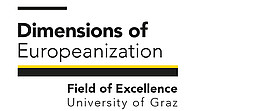Interdisciplinary Joint Master’s Programme in Southeast European Studies
About
In 2011 the universities of Graz, Zagreb, Belgrade and Skopje launched the Interdisciplinary Joint Master’s Programme in Southeast European Studies. In 2015 a new curriculum was introduced which reduced the programme to two university partners: Graz and Belgrade. This two-year MA programme is offered as a joint degree between the two partner universities. Students enroll in and spend the first year at their home university (Graz or Belgrade). In the second year, students spend at least one semester at a partner university. In addition to the two consortium partners (Graz and Belgrade) a number of other universities shall accept mobility students within the framework of the joint degree programme: universities of Bologna, Zagreb, Ljubljana, Novi Sad, Sarajevo, CEU Budapest, UCL and South East European University, Tetovo.
Since 2020, students enrolled at the University of Graz are supposed to choose between two disciplinary tracks:
- Law and Politics Track
- History Track
Content of the Programme
The Interdisciplinary Joint Master’s Programme in Southeast European Studies provides an international and interdisciplinary master’s programme in social sciences and humanities of the highest quality. The programme enables participants to effectively understand the interrelationship between law, politics, economics and culture with a particular emphasis on the regional dimension of Southeast Europe. The programme prepares students for doctoral studies and professional life in a variety of other fields including work in international, local governmental and non-governmental organisations, journalism, business, scientific research, and consultancy.
Structure of the programme
In the first year at the home university (Graz or Belgrade) enrolled students shall take compulsory core courses. Students also take electives which reflect their chosen disciplinary specialisation. In the summer following the first year, a joint summer school is held for all students from the four universities to complete the compulsory core modules. During the second year, students attend one of the partner universities and further specialise in their desired field. There are also optional provisions in place to offer students professional training and internship positions.
30 ECTS credits will be awarded upon completion of the master’s thesis. The thesis reflects the student’s capacity to work on scientific subjects in an independent and acceptable manner both in respect of content and methodology and must be written in English. The length of the thesis is 20,000 to 25,000 words. Students shall determine their master’s thesis topic according to the procedures and regulations at the respective home university and in consultation with the thesis supervisor.
All compulsory subjects are conducted in English though students are able to take classes in other languages depending on availability and level of competency. Language acquisition is an important aspect of the joint degree and students are expected to learn a regional language and/or the predominant language of their institution.
Students completing the Interdisciplinary Joint Master’s Programme in Southeast European Studies earn the degree “Master of Arts”, abbreviated MA. The joint degree is awarded, signed and stamped by all four partners (subject to the specifications of the home university).
Modules & Tracks
Law and Politics in Southeast Europe
The Law and Politics track focuses on the political and legal systems of Southeastern Europe, with a particular emphasis on the transformation of the region over the past three decades, including post-Communist democratization, nationalism and ethnic conflict, and Euro-Atlantic Integration, in particular EU accession. While focusing on law and political science, the track takes an interdisciplinary and broad approach in understanding the complex transformation that has characterised the region in recent decades, examining cultural and social change. The law and politics track explores Southeastern Europe in a comparative perspective, considering both the variety within the region, as well as in comparison with others.
Southeast European History (Graz)
The Southeast European History track explores long term historical trends in the region, including the legacy of empires, the emergence of nation-states and the Communist experience. The track explores the cultural and social history of the region, including family and gender relations, cultural transformation and the position of Southeastern Europe in Global history, including migration and other aspects of transnational history.
Mobility semester and summer school on Hvar island
In the summer after the first year, a joint summer school is held in Hvar, Croatia, for all students from the participating universities to complete the compulsory core modules. In the second year, students attend at least one semester on mobility at one of the partner universities and specialize in their desired field.
Student Assistantships at the Centre for Southeast European Studies
Students enrolled at the University of Graz will have a possibility to apply for one of the studentship positions offered by the Centre for Southeast European Studies.
Admission
The Interdisciplinary Joint Master’s Programme in Southeast European Studies welcomes individuals holding an academic degree of at least 180 ECTS credits (bachelor’s degree or equivalent programme of at least 180 ECTS) who can demonstrate a grounding in social sciences or humanities, (e.g. political science, law, sociology...) and who have some general insight in Southeast Europe (the Balkans). For further details about application see: http://www.jointdegree.eu/en/masees/
Kontakt
Zentrum für Südosteuropastudien
Schubertstrasse 21/1
8010 Graz, Austria









